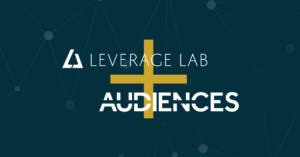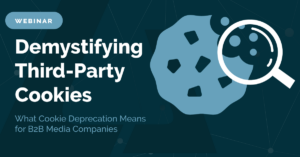Artificial intelligence in the field of marketing has empowered content creation in a way that is more effective and efficient than ever before. Marketers’ hands are now freed up a little more to fit in their creative endeavors as opposed to getting absorbed into time-consuming tasks. According to Salesforce, high-performing marketing teams are over two times more likely to use AI in their campaigns than their underperforming counterparts. By creating highly targeted, relevant, and personalized AI content, you boost user engagement, conversions, and retention. Fortunately for marketers, they too know the importance of turning to AI for help. AI helps with collecting and analyzing mountains of customer data, accelerate the process of content creation, and personalize user experiences.
How NLG Plays a Role in AI Content Creation
As online users become more tech-savvy, more digital channels are being used. As a result, platform prioritization is just as important as the content that will be personalized to it. Fortunately, AI-generated content requires little to no human interaction in the process. The AI tools used to generate content are called natural language generation (NLG) from your structured data. When strategically implemented, an NLG system can transform numbers from charts and spreadsheets into real-world narratives that give marketers an edge on illustrating a clearer persona to tailor their marketing campaigns to.
It is also important not to mistake NLG with NLP (natural language processing). NLP converts numbers into texts, whereas NLG writes content.
What Other Roles Does NLG Play?
We have already seen AI technology take form in the things we do every day, it’s just that not much thought goes into what makes this possible. This can be seen through customer service chatbots and smart word suggestions, all the way up to creating highly targeted content.
Other uses include topic inspiration, content profiling, and accuracy. As can be seen, AI has a plethora of applications in the field of online marketing. Other impressive feats of the AI utilizing NLG tools are writing titles and meta descriptions of content on various platforms; generating informative production descriptions of products; creating financial reports for customers; and writing study reports.
What are Content Creation AIs Up to Now?
Now AI tools provide nonstop, data-driven feedback loops that convey insights to content creators, creating the desired personalization that we’ve all come to expect from our online searching experience.
Artificial intelligence helps content marketers create content automatically utilizing algorithms. We often read that AI would soon replace content writers. That’s why it’s important to keep up with the latest best practices on future-proofing your newsrooms and adapt. (You can catch a webinar from Quintype in which their CEO Chirdeep Shetty interviews Leverage Lab’s VP of Marketing and Sales on future-proofing your newsrooms HERE).
Make note that NLG is the primary technology that powers content creation AI. It will only continue to improve from here. It is becoming a powerful digital marketing solution in a way that helps users achieve faster content creation while remaining more productive with other roles.
Simple stories such as stock market updates and sports reports are already being written by AI-based software. This can already be seen with news articles released by large publishers who rely on content creation by bots, such as Washington Post and their robot reporter, Heliograf. Further, Heliograf has already published over 850 articles in the past year.
AI Takes Roles But Creates Something Else in Its Place
One of the important challenges of content creation is understanding the performance of various marketing initiatives that’s been taken into account by the brand in the past. To avoid being data-rich and insight-poor by storing large amounts of data in a dusty old folder, AI technology addresses this problem by capturing and analyzing customer data faster. In doing so, it makes sense of all structured and unstructured data that you collect, providing insights into what triggers customer behaviors and facilitating new relationships; inspiring conversions.
The use of content creation AI has given rise to a new field of industry, dubbed content intelligence. It has become a catchphrase that is quickly holding its own in the marketing and data analytics world. The American Marketing Association defines content intelligence as the systems and software that transform content data and business data into actionable insights for content strategy and tactics with impact.
Machine learning has a lot to do with how AI operates when it comes to gaining customer insights, personalizing content, and automating content marketing operations. These areas of focus are centered on automation and optimization of processes, seamless customer experience, and content personalization.
What Other Feats are Content Creation AI Capable of?
Predictive Intelligence
On top of adding structure to an organization, predictive intelligence helps generate leads via a scoring system; used to regulate prospects during their buyer journey. It speeds up the process by deduction on which of these leads are promising for conversion based on their previous activities.
Facilitate Data-Driven Feedback for Hyper-Personalization
The approach of creating content that is personalized to the preferences of each customer is the ultimate goal in which marketers are wanting their content to embody. Through the use of AI, machine learning algorithms gather relevant data from various sources across various touchpoints to put a persona behind the buyer based on their preferences. In turn, this helps optimize content to the extent of maximizing ROI through critical SEO influences from AI.
Create and Curate Content
This one is obvious, but there’s more to it. Aside from creating content, curating multiple contents from various channels is a tedious task that requires significant time to churn out, hampering creative energy for marketers. Content creation is results-oriented, so the act of creating content just for the sake of doing so is out of the question. The end goal is to get these prospects through the awareness stage, leading to likely conversions or purchases.
It is without a doubt that AI will have an even greater impact and more expanded role in the reigns of marketing automation and intel-gathering processes despite humans still having a larger overall
role in content creation. It is important to think of these powerful pieces of technology as complements to a more tedious role that helps boost the creative process.















